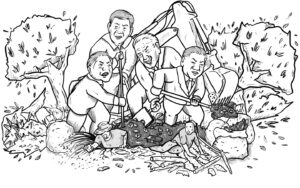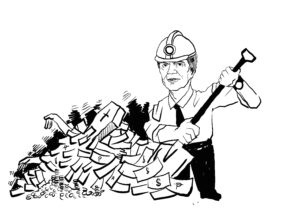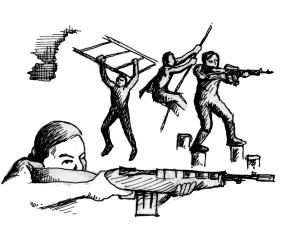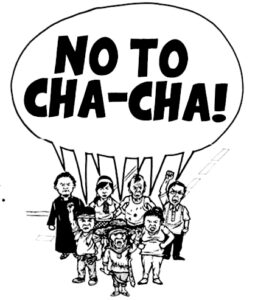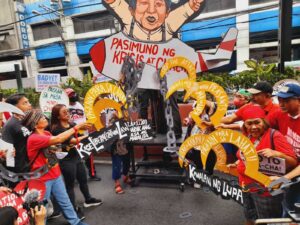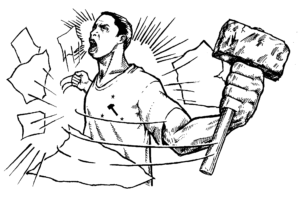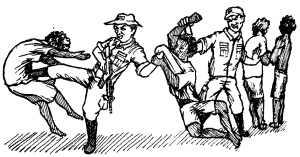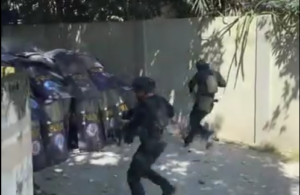Jeepney phaseout, burden on women

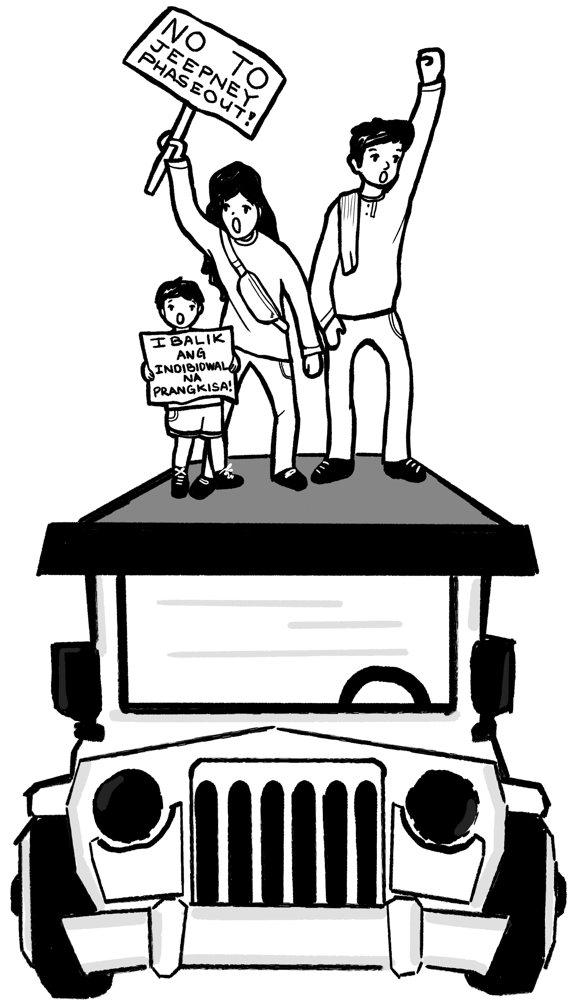
Always anxious, always stressed. Of course, that’s our sole means of livelihood,” shared Aling Myrna, wife of a jeepney driver who is also a bus conductor, when asked about the Marcos regime’s Public Utility Vehicles (PUV) phaseout program. This is the general sentiment of drivers and operators, their wives and families, even as the deadline of mandatory franchise consolidation was moved again to the end of April.
Over the past months, Aling Myrna has participated in the struggle to demand the restoration of individual franchises and completely scrap the bogus PUV Modernization Program. Like her, 51-year-old Aling Jenny also joined the movement to defend their livelihood.
How will we survive?
Aling Myrna’s husband has been a jeepney driver in a Metro Manila city for sixteen years. Aling Myrna’s job as a supervisor in a sewing factory used to support them, but they now depend mainly on plying their jeep after she got sick and got laid off during the pandemic. She used to earn a measly ₱15,000 per month without any benefits. Nevertheless, it helped augment their expenses.
Currently, the couple earns ₱2,800 from daily transport. But they only take home a net of ₱850 for every 12 hours of working after deducting ₱800 “boundary” (jeep rental), ₱150 per for their rented room, and ₱1,000 fuel expenses. The relentless rise in oil prices over the past seven weeks has struck them hard.
Aling Myrna and her husband fear the pending PUV phaseout because driving is his only work skill. “My husband is anxious when the phaseout was announced. Of course that is where he is accustomed to … he is not used to working in other fields of transportation,” she explained.
If they were to be kicked off the road, she does not know where to get their daily income. For food, the couple spends ₱300 a day. She mocked the government’s “recommended” ₱63 daily food cost for one person. “That’s it? What is your meal going to be, a single piece of dried fish?” she said.
Her ₱200 daily maintenance medicine, including insulin, is an additional expense. They are also supporting the school fees of their Grade 8 child who is in the province.
Aling Jenny and her husband, a driver of 17 years, are in a similar predicament. They are afraid, especially that the operator of their jeep refused to be placed under consolidation. The operator refused because he will have to give up seven jeepney units.
If they lose their jeepney, she said, her husband will just have to look for another job. “We can’t do anything,” she said. She now sidelines by selling food in the eatery in the garage of their route. The couple has six children and five of them are still studying. One is only in Grade 1.
Withdrawal from forced consolidation
In conservative government data as of December 2023, 1,767 jeepney routes nationwide or approximately 31% of the total 5,716 jeepney routes refused consolidation. Around 727 of the consolidated routes have a consolidation rate of less than 60%. Bicol has the largest number of unconsolidated jeepney routes at 451 or 68% of the total routes in the region. While 35% of the jeepney routes in Metro Manila do not have consolidated jeepneys.
The Land Transportation Franchising and Regulatory Board (LTFRB) brags that the number of those submitting to consolidation is “increasing” since the extension of the consolidation period. But contrary to this, associations of drivers and operators report that some of their members have withdrawn from the compulsory scheme.
With the rottenness of the mandatory consolidation and PUV Modernization exposed to the core, drivers and operators now demand the return of the franchises they surrendered to the scheme. They fear suffering the same fate of many others who went bankrupt and lost all their livelihood because of the program.
The Land Transportation Office (LTO) continues to force drivers and operators to submit to franchise consolidation and declared it will consider jeepneys as colorum (illegal) if they continue to ply their routes. They even warned that this is a “crime” where one can be imprisoned and fined.
While the implementation of the consolidation, which is part of the bogus PUV Modernization Program, is pending, the livelihood of drivers and operators and their families also hang in the balance. In the face of this, their call is united: return individual franchises, scrap forced consolidation and the bogus modernization program itself.

